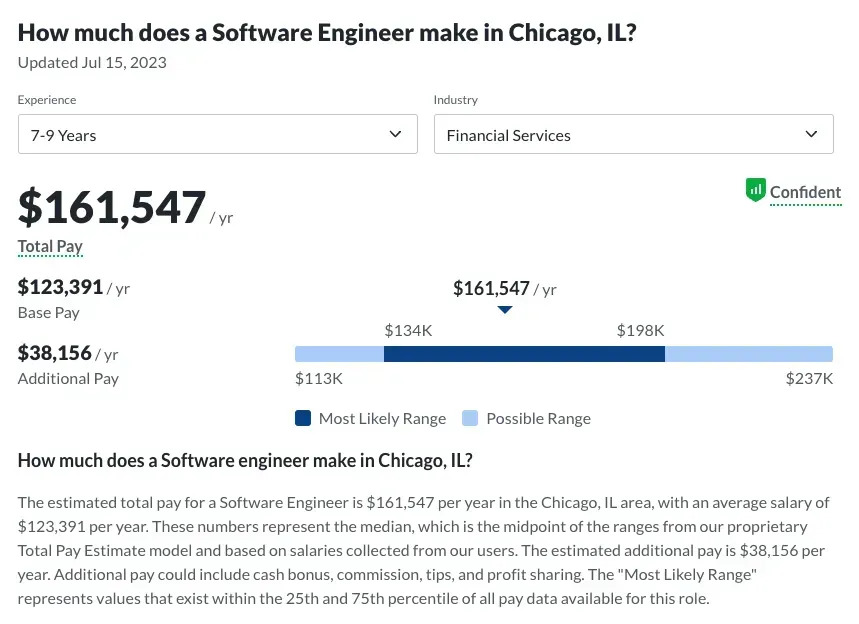
Getting Black Women Paid Blog

The Getting Black Women Paid Podcast
Blog Posts.

Negotiation 102
Negotiate Like a Boss with These 7 Strategic Moves
If you missed last week’s article, you can find that here: Negotiation 101: The 3 Key Principles to Maximize Your Earning Potential and Enhance Your Professional Journey
Now that you’re familiar with the basic principles of negotiation—the ZOPA, the BATN, and the Win-Win—it’s time to get practical. What are the things you need to know in order to put these concepts to work and actually navigate your next negotiation successfully?
Well, I’m so glad you asked.
Here are seven proven strategies to boost your confidence and success in negotiation:
1. Set Clear Objectives
Clearly define your objectives and priorities for the negotiation. Take some time before the negotiation to determine what specific outcomes or terms you’re seeking to achieve. Be sure to prioritize your interests, identify your dealbreakers (your non-negotiables), and consider the areas where you can be more flexible.
2. Prepare Thoroughly
Do some research to gather relevant information about the position, industry, and market trends. You can use sites like glassdoor to find average salaries* for a particular job title and you can even filter by location, industry, and years of experience.

Glassdoor salary search — screenshot by the author
*Note that the graph above is showing total compensation. You can see the breakdown of “Base Pay” (pre-tax salary) and “Additional Pay” (bonuses, equity, etc.) toward the left of the display.
The goal of your research is to understand the salary ranges, compensation packages, and benefits offered in similar roles. Then, try to anticipate potential objections or concerns that the company may raise and prepare counterarguments.
3. Use Active Listening & Effective Communication
Practice active listening skills to understand the other party’s perspective and interests. Then, clearly articulate your own thoughts, needs, and expectations. You can make use of effective communication techniques, such as asking open-ended questions, paraphrasing, and summarizing, to ensure clear understanding and promote constructive dialogue.
4. Seek Win-Win Solutions
Look for creative options and mutually beneficial solutions that address both your interests and those of the company. You’ll want to focus on the underlying needs and objectives rather than fixed positions. Think of the negotiation as a collaboration, a team effort. Work together with the company to find common ground and explore innovative alternatives.
5. Negotiate Beyond Salary
Consider negotiating other aspects of the job, such as bonuses, benefits, flexible working arrangements, or professional development opportunities. Here are some non-salary forms of compensation you can suggest:
Bonuses — a signing bonus or an increase in the percentage of your annual bonus eligibility
Additional equity in the company
Additional paid time off
An increased learning and development budget
Flexible work hours or additional remote working days
A four-day workweek — either 4 10-hour days or a 32-hour workweek
Home office setup or other stipends — these often come from a different budget than employee salaries. It may be possible to get money for home office supplies such as a monitor or office chair or to have all or a portion of your internet or phone bills covered.
Relocation reimbursement — if you will be relocating for this job, the company may be willing to compensate you for your moving costs.
An expedited review schedule — you can ask to have your title and compensation revisited after 90 days or 6 months rather than the usual one-year mark. Note: you will want to get this in writing in your offer letter to reference later.
An expedited schedule for benefits like parental leave or tuition reimbursement — there are many programs that are offered only to employees who have been with the company for at least one year. You can include in your negotiations a willingness to come down on salary if you can have access to these benefits right away. This can be especially important for anyone who is already enrolled in an education program or for someone who is already or planning to become pregnant.
This is an opportunity to get creative! When you show that you are willing to be flexible on salary and offer creative solutions in order to reach a mutually beneficial result, you can turn the negotiation into a relationship-building exercise.
Photo by Cytonn Photography on Unsplash
6. Maintain Professionalism and Confidence
Do your best to remain composed, respectful, and professional throughout the negotiation process. Avoid becoming overly emotional or making personal attacks. Instead, express confidence in your abilities, skills, and the value you bring to the role, and be sure to highlight how your contributions align with the company’s mission or goals.
7. Practice Role-Playing
Engage in role-playing exercises to simulate negotiation scenarios and practice applying the techniques you’ve learned. You can seek feedback from peers or mentors to improve your negotiation skills. Here are a few scenarios to get you started:
Scenario #1: Negotiating a new role at a new organization
You are interviewing for a senior management position at a tech company. The initial offer is competitive, but you believe you can negotiate for a better package. In this scenario, you can negotiate:
Base salary: Advocate for a higher starting salary based on your skills, experience, and the market value for the position.
Sign-on bonus: Request a sign-on bonus to acknowledge your expertise and the value you bring to the company.
Remote work flexibility: Negotiate the option to work remotely for a certain number of days per week.
Professional development opportunities: Discuss the company's support for ongoing training, conferences, or certifications.
Scenario #2: Negotiating a promotion or raise at your current organization
You have been working diligently in your current role and feel ready for a promotion or raise. In this scenario, you can negotiate:
Promotion to a higher-level position: Make a case for your achievements, increased responsibilities, and contributions to the organization.
Salary increase: Highlight your accomplishments and the value you have added to the company, and request a raise that reflects your performance.
Flexible work arrangements: Discuss the possibility of flexible work hours or remote work options as part of your negotiation.
Additional benefits: Explore options such as increased vacation days, enhanced health insurance, or opportunities for professional growth.
Scenario #3: Negotiating a promotion with increased leadership responsibilities
You have been offered a promotion with increased leadership responsibilities, but the initial salary offer does not reflect the added value you bring. In this scenario, you can negotiate:
Base salary: Advocate for a higher starting salary that aligns with the increased responsibilities and market value for the position.
Title and recognition: Discuss the importance of a title that accurately reflects your role and responsibilities, along with the recognition that comes with it.
Performance incentives: Propose a performance-based bonus structure tied to specific goals and targets.
Leadership development opportunities: Negotiate for leadership training, coaching, or mentoring to support your growth in the new role.
Take Action
As a result of the takeaways from this article, I encourage you to take action this week. Commit to one concrete step that moves you closer to achieving your negotiation goals.
It could be reaching out to schedule a meeting to discuss a promotion, researching salary ranges for your desired position, or practicing active listening in your upcoming conversations. Remember, small steps can lead to significant progress.
Let’s support each other in our journey toward effective negotiation and career advancement. Share your commitment and progress in the comments so we can keep each other motivated and accountable. Together, let’s thrive and achieve the success we deserve!
Conclusion
The seven strategies to boost your confidence and success in negotiation are:
Set clear objectives
Prepare thoroughly
Use active listening and effective communication
Seek win-win solutions
Negotiate beyond salary
Maintain professionalism and confidence
Practice role-playing
Remember, success in negotiation comes with practice and perseverance. Embrace the challenges, celebrate the victories, and continue taking decisive steps toward achieving your professional goals.
You have the power to negotiate your way to greater success and fulfillment!
If you enjoyed this article and found it helpful, please consider sending me a tip here. Your support allows me to continue providing valuable content like this and contributes to my mission to help Black women attain financial freedom and build generational wealth.
Thank you for being a part of this journey with me. Let’s continue to support and uplift each other as we work toward our financial goals and create the lives we deserve!
For weekly inspiration and tips on how to claim yours, sign up for my newsletter here.
For more on financial independence, check out these recent articles:

Negotiation 102
Negotiate Like a Boss with These 7 Strategic Moves
If you missed last week’s article, you can find that here: Negotiation 101: The 3 Key Principles to Maximize Your Earning Potential and Enhance Your Professional Journey
Now that you’re familiar with the basic principles of negotiation—the ZOPA, the BATN, and the Win-Win—it’s time to get practical. What are the things you need to know in order to put these concepts to work and actually navigate your next negotiation successfully?
Well, I’m so glad you asked.
Here are seven proven strategies to boost your confidence and success in negotiation:
1. Set Clear Objectives
Clearly define your objectives and priorities for the negotiation. Take some time before the negotiation to determine what specific outcomes or terms you’re seeking to achieve. Be sure to prioritize your interests, identify your dealbreakers (your non-negotiables), and consider the areas where you can be more flexible.
2. Prepare Thoroughly
Do some research to gather relevant information about the position, industry, and market trends. You can use sites like glassdoor to find average salaries* for a particular job title and you can even filter by location, industry, and years of experience.

Glassdoor salary search — screenshot by the author
*Note that the graph above is showing total compensation. You can see the breakdown of “Base Pay” (pre-tax salary) and “Additional Pay” (bonuses, equity, etc.) toward the left of the display.
The goal of your research is to understand the salary ranges, compensation packages, and benefits offered in similar roles. Then, try to anticipate potential objections or concerns that the company may raise and prepare counterarguments.
3. Use Active Listening & Effective Communication
Practice active listening skills to understand the other party’s perspective and interests. Then, clearly articulate your own thoughts, needs, and expectations. You can make use of effective communication techniques, such as asking open-ended questions, paraphrasing, and summarizing, to ensure clear understanding and promote constructive dialogue.
4. Seek Win-Win Solutions
Look for creative options and mutually beneficial solutions that address both your interests and those of the company. You’ll want to focus on the underlying needs and objectives rather than fixed positions. Think of the negotiation as a collaboration, a team effort. Work together with the company to find common ground and explore innovative alternatives.
5. Negotiate Beyond Salary
Consider negotiating other aspects of the job, such as bonuses, benefits, flexible working arrangements, or professional development opportunities. Here are some non-salary forms of compensation you can suggest:
Bonuses — a signing bonus or an increase in the percentage of your annual bonus eligibility
Additional equity in the company
Additional paid time off
An increased learning and development budget
Flexible work hours or additional remote working days
A four-day workweek — either 4 10-hour days or a 32-hour workweek
Home office setup or other stipends — these often come from a different budget than employee salaries. It may be possible to get money for home office supplies such as a monitor or office chair or to have all or a portion of your internet or phone bills covered.
Relocation reimbursement — if you will be relocating for this job, the company may be willing to compensate you for your moving costs.
An expedited review schedule — you can ask to have your title and compensation revisited after 90 days or 6 months rather than the usual one-year mark. Note: you will want to get this in writing in your offer letter to reference later.
An expedited schedule for benefits like parental leave or tuition reimbursement — there are many programs that are offered only to employees who have been with the company for at least one year. You can include in your negotiations a willingness to come down on salary if you can have access to these benefits right away. This can be especially important for anyone who is already enrolled in an education program or for someone who is already or planning to become pregnant.
This is an opportunity to get creative! When you show that you are willing to be flexible on salary and offer creative solutions in order to reach a mutually beneficial result, you can turn the negotiation into a relationship-building exercise.
Photo by Cytonn Photography on Unsplash
6. Maintain Professionalism and Confidence
Do your best to remain composed, respectful, and professional throughout the negotiation process. Avoid becoming overly emotional or making personal attacks. Instead, express confidence in your abilities, skills, and the value you bring to the role, and be sure to highlight how your contributions align with the company’s mission or goals.
7. Practice Role-Playing
Engage in role-playing exercises to simulate negotiation scenarios and practice applying the techniques you’ve learned. You can seek feedback from peers or mentors to improve your negotiation skills. Here are a few scenarios to get you started:
Scenario #1: Negotiating a new role at a new organization
You are interviewing for a senior management position at a tech company. The initial offer is competitive, but you believe you can negotiate for a better package. In this scenario, you can negotiate:
Base salary: Advocate for a higher starting salary based on your skills, experience, and the market value for the position.
Sign-on bonus: Request a sign-on bonus to acknowledge your expertise and the value you bring to the company.
Remote work flexibility: Negotiate the option to work remotely for a certain number of days per week.
Professional development opportunities: Discuss the company's support for ongoing training, conferences, or certifications.
Scenario #2: Negotiating a promotion or raise at your current organization
You have been working diligently in your current role and feel ready for a promotion or raise. In this scenario, you can negotiate:
Promotion to a higher-level position: Make a case for your achievements, increased responsibilities, and contributions to the organization.
Salary increase: Highlight your accomplishments and the value you have added to the company, and request a raise that reflects your performance.
Flexible work arrangements: Discuss the possibility of flexible work hours or remote work options as part of your negotiation.
Additional benefits: Explore options such as increased vacation days, enhanced health insurance, or opportunities for professional growth.
Scenario #3: Negotiating a promotion with increased leadership responsibilities
You have been offered a promotion with increased leadership responsibilities, but the initial salary offer does not reflect the added value you bring. In this scenario, you can negotiate:
Base salary: Advocate for a higher starting salary that aligns with the increased responsibilities and market value for the position.
Title and recognition: Discuss the importance of a title that accurately reflects your role and responsibilities, along with the recognition that comes with it.
Performance incentives: Propose a performance-based bonus structure tied to specific goals and targets.
Leadership development opportunities: Negotiate for leadership training, coaching, or mentoring to support your growth in the new role.
Take Action
As a result of the takeaways from this article, I encourage you to take action this week. Commit to one concrete step that moves you closer to achieving your negotiation goals.
It could be reaching out to schedule a meeting to discuss a promotion, researching salary ranges for your desired position, or practicing active listening in your upcoming conversations. Remember, small steps can lead to significant progress.
Let’s support each other in our journey toward effective negotiation and career advancement. Share your commitment and progress in the comments so we can keep each other motivated and accountable. Together, let’s thrive and achieve the success we deserve!
Conclusion
The seven strategies to boost your confidence and success in negotiation are:
Set clear objectives
Prepare thoroughly
Use active listening and effective communication
Seek win-win solutions
Negotiate beyond salary
Maintain professionalism and confidence
Practice role-playing
Remember, success in negotiation comes with practice and perseverance. Embrace the challenges, celebrate the victories, and continue taking decisive steps toward achieving your professional goals.
You have the power to negotiate your way to greater success and fulfillment!
If you enjoyed this article and found it helpful, please consider sending me a tip here. Your support allows me to continue providing valuable content like this and contributes to my mission to help Black women attain financial freedom and build generational wealth.
Thank you for being a part of this journey with me. Let’s continue to support and uplift each other as we work toward our financial goals and create the lives we deserve!
For weekly inspiration and tips on how to claim yours, sign up for my newsletter here.
For more on financial independence, check out these recent articles:
Earn the Salary You Deserve
Book your Salary You Deserve Strategy Session today!
Investment: $97
Getting Black Women Paid
Location
P.O. Box 705
Forest Park, IL 60130
Let's Connect!
For weekly strategies, insights, and inspiration, sign up for the Claim Yours Newsletter.
Getting Black Women Paid
Location
Contact
Follow
